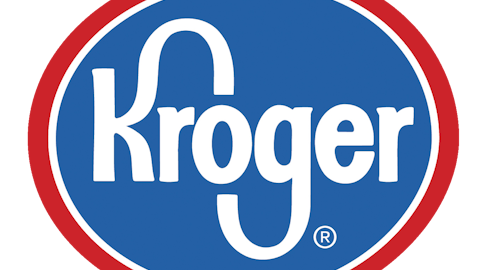There’s been a lot of concern about dividend stocks of late as interest rates have started to move higher. Although there is plenty of dividend hype going around, investors looking for income should look at companies providing customers needed products and investors regular dividend increases. Wal-Mart Stores, Inc. (NYSE:WMT), Target Corporation (NYSE:TGT), and Dollar General Corp. (NYSE:DG) fit the bill.
By the Numbers
Jeremy Schwartz, WisdomTree’s director of research, released a report earlier in the year highlighting dividend growth to create a compelling story for why his company’s ETFs are superior to other dividend ETF options. While it’s true that WisdomTree’s index includes dividend growers more quickly than competing products, the company’s own performance numbers don’t support quick growth over long histories of dividend increases.
In fact, WisdomTree Dividend Index never got above the number two slot for performance versus competing indexes in any of the trailing periods presented in the report. That’s hardly a compelling argument for focusing heavily on fast-growing dividends.
The S&P High Yield Dividend Aristocrats Index, which requires 20 years of dividend increases before a stock gets included, outperformed the other indexes presented over all but one of the trailing periods presented. So, at the end of the day, if you are looking for dividend stocks, start with companies that have long histories of dividend increases.
With interest rate concerns rattling the market, companies trying to jump on the dividend bandwagon, and Wall Street’s product mongers working on new dividend ideas, it’s time to refocus on good companies with long and reliable dividend histories. Here are three retailers to look at:
The Giant
Wal-Mart Stores, Inc. (NYSE:WMT) is the largest retailer in the world. It focuses on low prices. That’s a good business model, as cheap will always get people through the doors. That said, its target market is clearly the lower rungs of the socioeconomic spectrum, a group that has been struggling in most developed markets.

That said, it might make sense to wait for a pullback, since U.S. weakness might take the shares down a peg. The recent yield is in the 2.4% range. It would be a great buy closer to a 3% yield.
A Hip Option
Target Corporation (NYSE:TGT) is another massive retailer, only its business is pretty much confined to the U.S. market. It is Wal-Mart Stores, Inc. (NYSE:WMT)’s most material domestic competitor. The interesting thing is that while Wal-Mart focuses on cheap, Target focuses on cool and kind of cheap. You don’t feel like you’re trading down in a Target… You definitely feel like you are being cheap in a Wal-Mart.
That subtle difference is all that Target Corporation (NYSE:TGT) has needed to compete against the industry’s 800 pound gorilla in The United States. Revenues have been trending higher since 2005 and the company boasts a profit margin that is a full percentage point above Wal-Mart Stores, Inc. (NYSE:WMT)’s. The stock’s yield is the same as Wal-Mart’s, but Target does a better job of getting money from the top line to the bottom line.
The really exciting thing here, though, is growth potential. Wal-Mart Stores, Inc. (NYSE:WMT) is massive the world over. Target Corporation (NYSE:TGT) is only just starting to enter its first foreign market, Canada. It has proven it can compete with Wal-Mart domestically, so it will probably achieve similar results overseas. Target, then, looks to have years of international expansion ahead.
Just a Dollar
Another retailer on the Aristocrat list that competes with Wal-Mart Stores, Inc. (NYSE:WMT) is Family Dollar. The company operates a chain of over 7,500 stores across 45 states. The shops are tiny compared to cavernous Wal-Marts, but that means that they can be located more closely to customers. That’s an important selling point for the lower income group that Family Dollar targets. Being closer also allows the company to charge higher prices than Wal-Mart on similar items.
The company’s top line has grown every year for the past decade, with earnings increasing from around $1.40 per share in 2003 to a touch over $3.50 last year. The dividend yield is around 1.5%. As long as Family Dollar has a lock on the proximity angle, it should be able to compete with Wal-Mart Stores, Inc. (NYSE:WMT) even though it has higher price points.
The stock, however, has been on a steady accent. Of the trio, it sports the highest price to earnings ratio at about 19. Wal-Mart Stores, Inc. (NYSE:WMT)’s PE is around 15, while Target Corporation (NYSE:TGT)’s is in the 17 range. Family Dollar is most appropriate for growth investors.
Big is Good, But…
Being the big fish is a good thing and should serve Wal-Mart Stores, Inc. (NYSE:WMT) well over time. That said, Wal-Mart is relatively cheap, but also has the least impressive growth prospects of the three retailers. Both Target Corporation (NYSE:TGT) and Family Dollar have unique niches that should let them prosper in the giant’s shadow for years to come, and their valuations appear supported by their rosier growth outlooks.
Reuben Brewer has no position in any stocks mentioned. The Motley Fool has no position in any of the stocks mentioned.
The article The Dividend Fad, Consider These Retail Regulars originally appeared on Fool.com.
Copyright © 1995 – 2013 The Motley Fool, LLC. All rights reserved. The Motley Fool has a disclosure policy.




